Immerse yourself in a culinary journey like no other. Uncover the secrets of traditional northern Irish food, savour the flavours of the Ulster Fry, relish the comforting Irish Stew, and discover the magic behind the Belfast Bap. Ready to embark on a gastronomic adventure through the land of the shamrock? Then, let’s dive in!
Key Takeaways
Explore Northern Irish cuisine, from the classic Ulster Fry breakfast to hearty Irish Stew and traditional baked goods.
Sample seafood delicacies likefreshoysters and smoked salmon, or savourlocal treats like Fifteens and Yellow Man.
Enjoy unique dishes like Belfast Bap or Vegetable Roll for a true taste of Northern Ireland’s culinary heritage.
Savoring the Ulster Fry: A Breakfast Staple
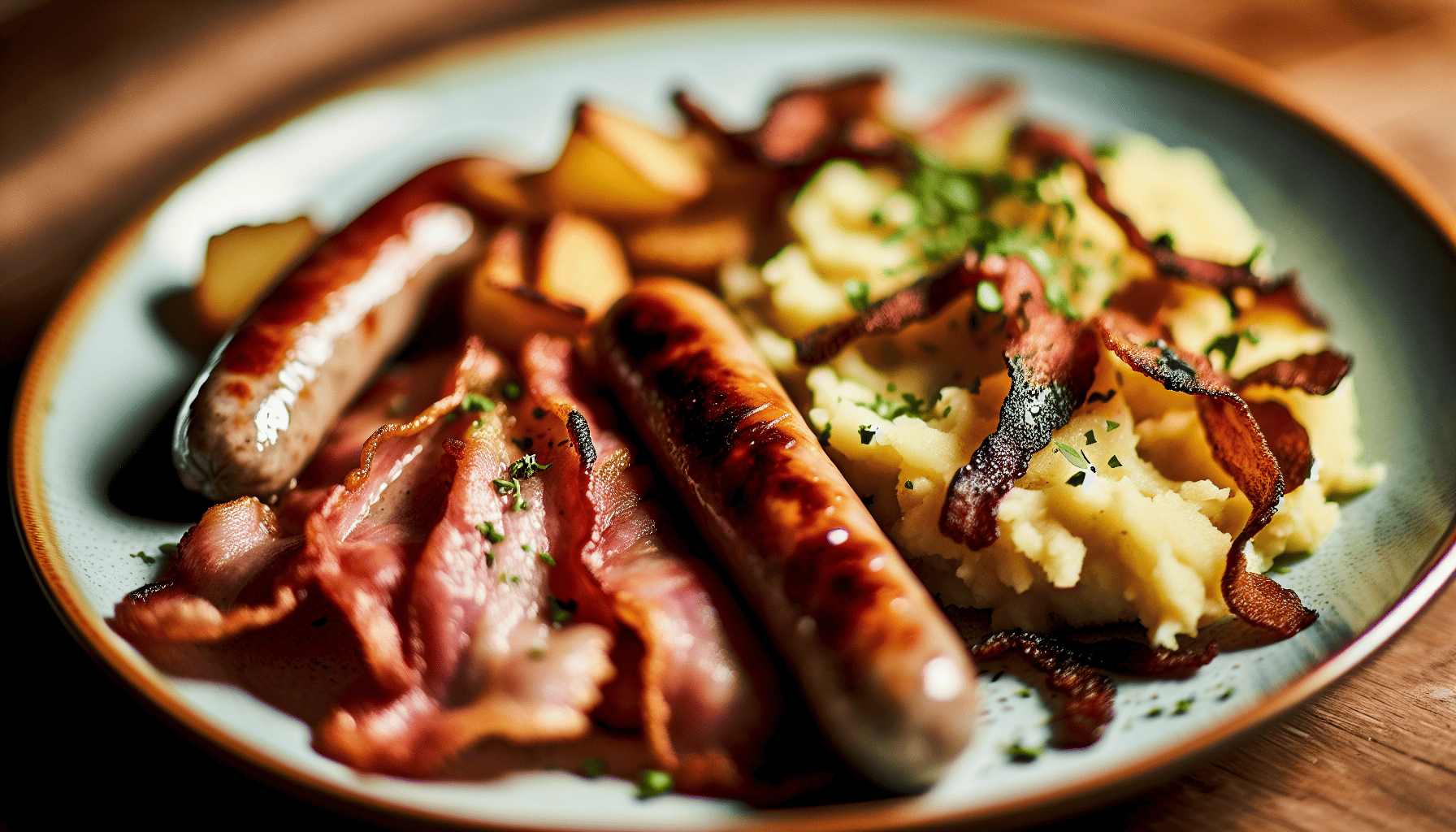
In Northern Ireland, breakfast extends beyond merely the day’s first meal. It’s an affair of hearty proportions, featuring a local favorite known as the Ulster Fry. Imagine a plate laden with:
crispy bacon
succulent sausages
fried eggs
slices of black pudding
soda bread
potato bread
This esteemed traditional Irish breakfast kick-starts the day with a gastronomic delight. Be it a chilly winter morning or a sunny summer day, an Ulster Fry is an invitation to enjoy a generous dose of Northern Irish hospitality.
The History of Ulster Fry
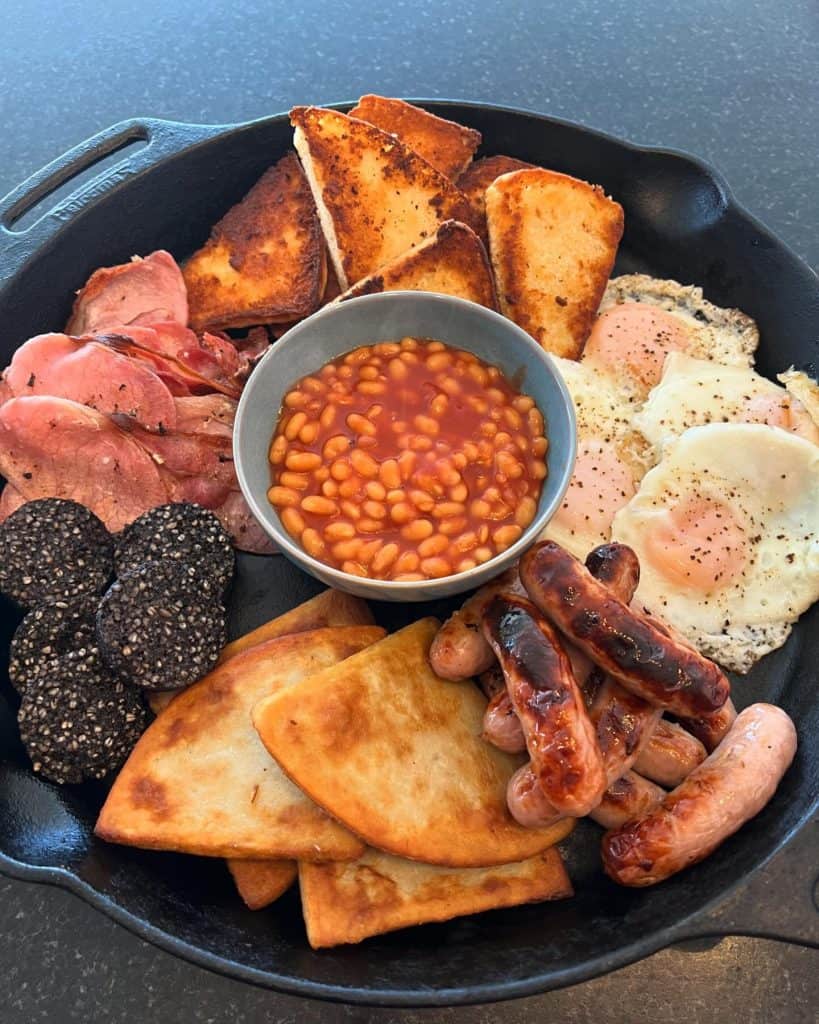
The Ulster Fry’s humble beginnings can be traced back to the Victorian era. It started as a hearty breakfast for hard-working farmers, providing them with the much-needed fuel for a long day. However, its popularity soared after World War II, when it became a staple in every Irish household.
The name ‘Ulster Fry’ even reflects its cultural significance, originating from the Protestant community in Ulster. Whether you call it a ‘Fry’ or an ‘Irish Fry,’ one thing remains constant – it’s a beloved part of Northern Irish cuisine.
Crafting the Perfect Ulster Fry
Crafting the ideal Ulster Fry involves the artful use of appropriate ingredients and cooking techniques. The recipe calls for:
Bacon
Sausage
Eggs
White and black pudding
Soda bread
Potato bread
But what sets the Ulster Fry apart is the preparation. Each ingredient is carefully cooked to perfection, with eggs usually fried and served with back bacon, black pudding, sausages, and bread items.
And let’s not forget the potato bread, a versatile staple that can be prepared by frying or baking, commonly accompanying this traditional dish.
Comparing Breakfasts
How does the Ulster Fry stack up against global traditional breakfasts? Well, let’s just say that it holds its own. With its hearty components, the Ulster Fry stands tall against traditional English breakfasts and offers a unique twist on the typical breakfast spread. It’s not just a meal; it’s a testament to the rich history and culture of Northern Ireland.
The Heart of Northern Irish Cuisine: Irish Stew
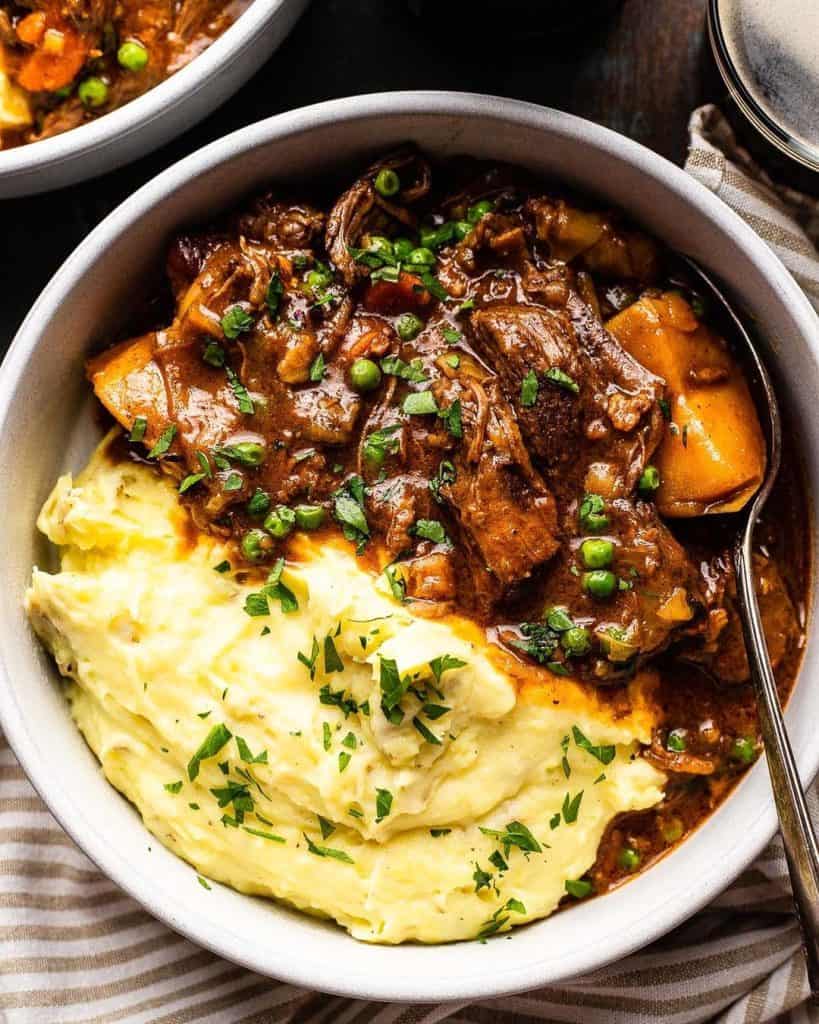
Transitioning from breakfast to lunch, we explore the core of Northern Irish cuisine, epitomized by the classic Irish Stew. Picture a bowl of:
tender cuts of lamb or mutton
potatoes
onions
some recipes even including additional vegetables like carrots
All slowly simmered to create a richly flavored broth.
This traditional Irish stew, a classic example of Irish food, is a symbol of home and comfort, making it a popular dish especially during the cold Irish winter months.
Components of a Classic Irish Stew
A traditional Irish Stew beautifully combines simplicity with flavour. The main components are beef or lamb, and root vegetables such as carrots, onions, and potatoes. But the star of the dish is the broth. It’s created by simmering lamb bones with carrots, onions, celery, fresh herbs, peppercorns, and salt for several hours.
This process gives the broth a rich and flavorful base that binds the ingredients together and brings out the best in this classic dish.
Local Variations
As with any traditional dish, Irish Stew boasts of numerous local variations throughout Northern Ireland. Here are some examples:
In Belfast, lamb is typically used.
In Derry, it’s beef mince.
In County Antrim, the stew often sticks to the traditional lamb or mutton base and may incorporate ingredients such as carrots, turnips, and barley.
Regardless of the variations, one thing remains constant – every bowl of Irish stew is a taste of traditional dishes.
The Pride of Baked Goods: Soda Bread and Potato Bread
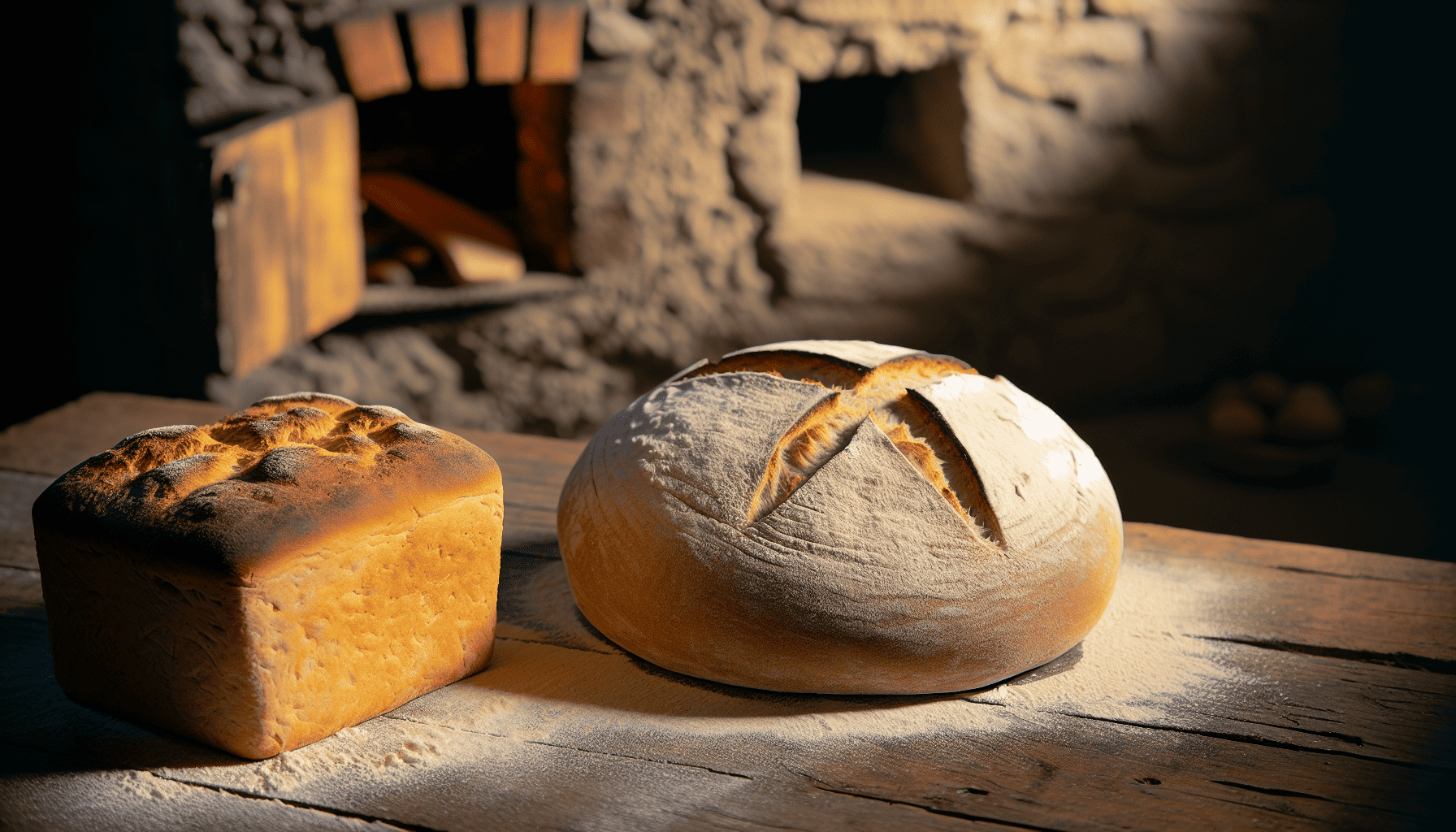
Bread, especially Soda Bread and Potato Bread, has consistently occupied a prominent spot in Northern Irish cuisine. These traditional breads are not just basic food items; they are symbols of the region’s history and culinary prowess.
Whether it’s the quick bread tradition of Soda Bread or the humble beginnings of Potato Bread, these baked goods are a testament to Northern Ireland’s culinary heritage.
Soda Bread: The Quick Bread Tradition
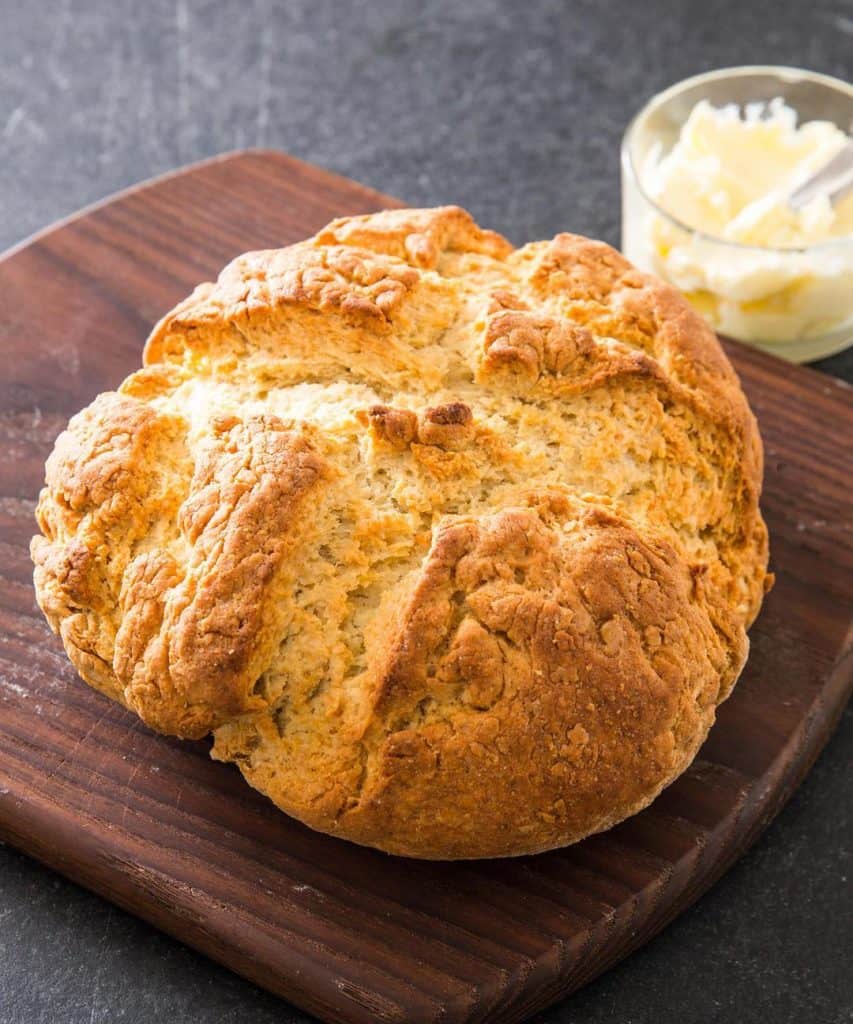
In Northern Irish cuisine, Soda Bread, a quick bread that swaps yeast for baking soda, enjoys a considerable standing. Its origins can be traced back to Native American cuisine, and it gained popularity in Ireland in the late 1830s after the introduction of baking soda.
Today, it’s prepared on a griddle as a flatbread and can be made with either white or brown flour. Its simplicity, versatility, and easy preparation make it a beloved part of Irish hospitality.
Potato Bread: From Humble Beginnings to Modern Day
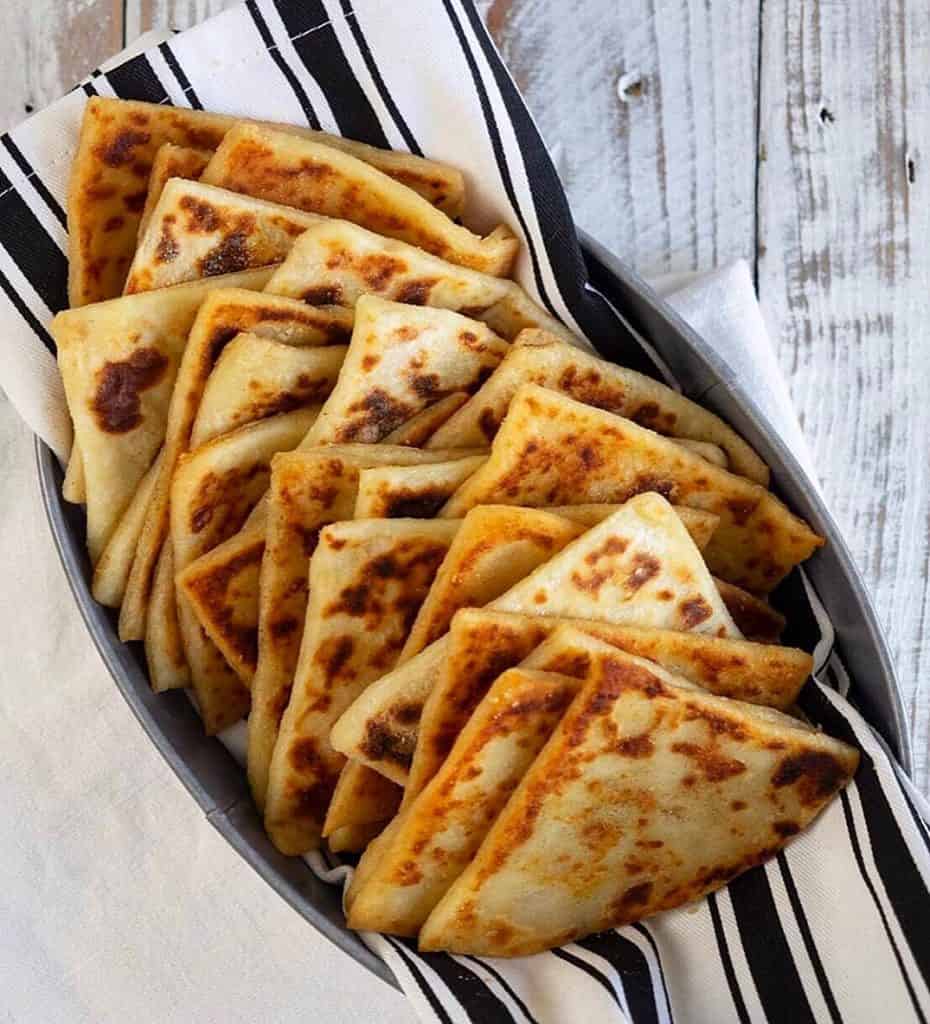
Potato Bread, originating from modest roots in Belfast, has evolved into an integral component of Northern Irish cuisine. This delicious bread is crafted from mashed potatoes, flour, and butter, and shaped into scones. Over time, it has evolved from a staple food closely associated with Irish soda bread to a cherished traditional food.
Whether it’s served as part of an Ulster Fry or enjoyed on its own, Potato Bread is a testament to Northern Ireland’s culinary evolution.
Whiskey and Coffee Fusion: The Legendary Irish Coffee
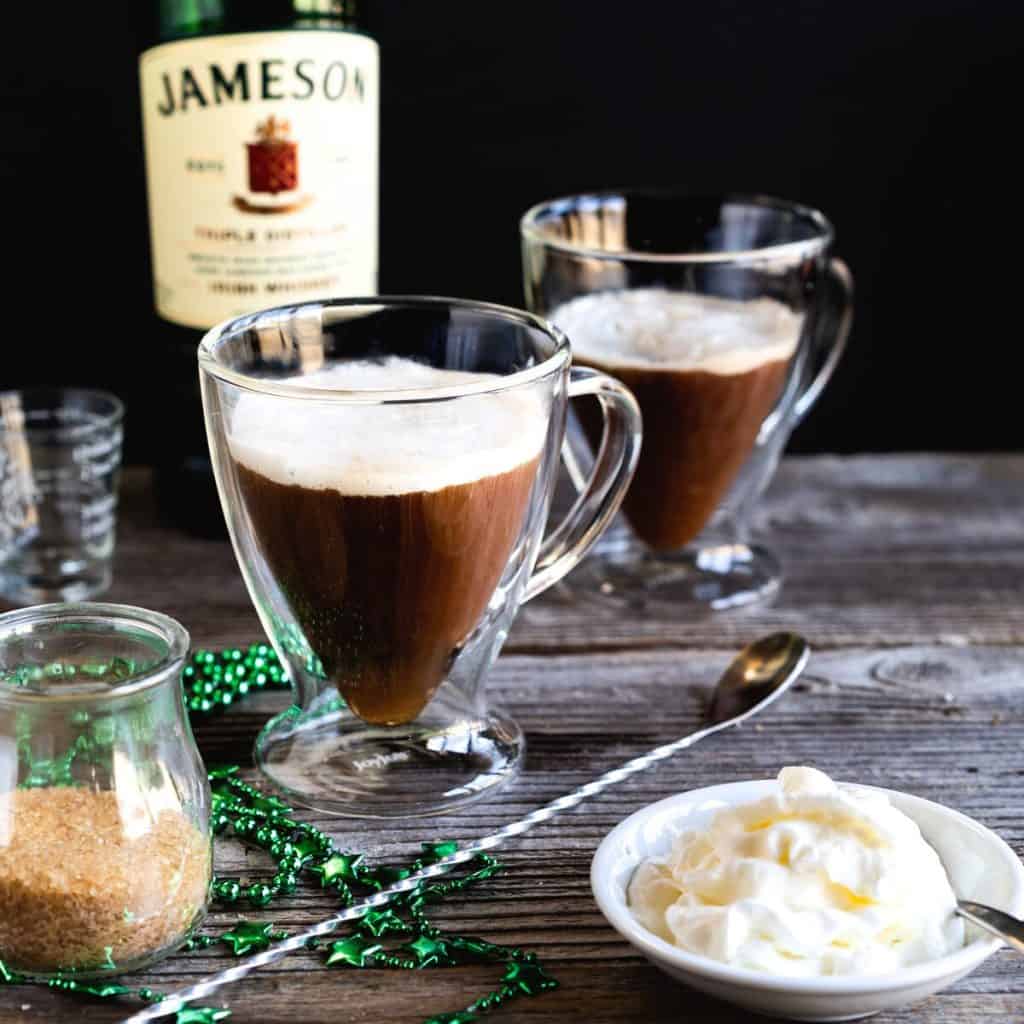
Continuing our culinary journey, let’s pause to relish a unique blend of flavours – the iconic Irish Coffee. This hot drink combines fresh coffee, Irish cream liqueur, Irish whiskey, and is typically topped with whipped cream. Originating in Limerick in 1943, Irish Coffee has since become a beloved part of Irish cuisine.
The Creation of Irish Coffee
Chef Joe Sheridan, who invented Irish Coffee at Foynes Airport, a flying boat terminal in County Limerick, is credited for its creation. According to legend, he created the drink to warm up passengers on a cold winter night. The drink was an instant hit and quickly became a staple in Irish bars and pubs.
Today, Irish Coffee is not just a warm beverage; it’s a symbol of Irish hospitality and warmth.
Enjoying Irish Coffee Today
Today, Irish Coffee continues to be relished globally. Whether it’s at a cozy pub in Northern Ireland or a trendy coffee shop in the heart of New York, this whiskey and coffee fusion is a beloved part of the global coffee culture. If you’re in Northern Ireland, don’t miss the chance to savour an Irish Coffee at local gems such as:
White’s Tavern
Margot
Morning Star
Henrys
A Sweet Tooth’s Delight: Fifteens and Yellow Man
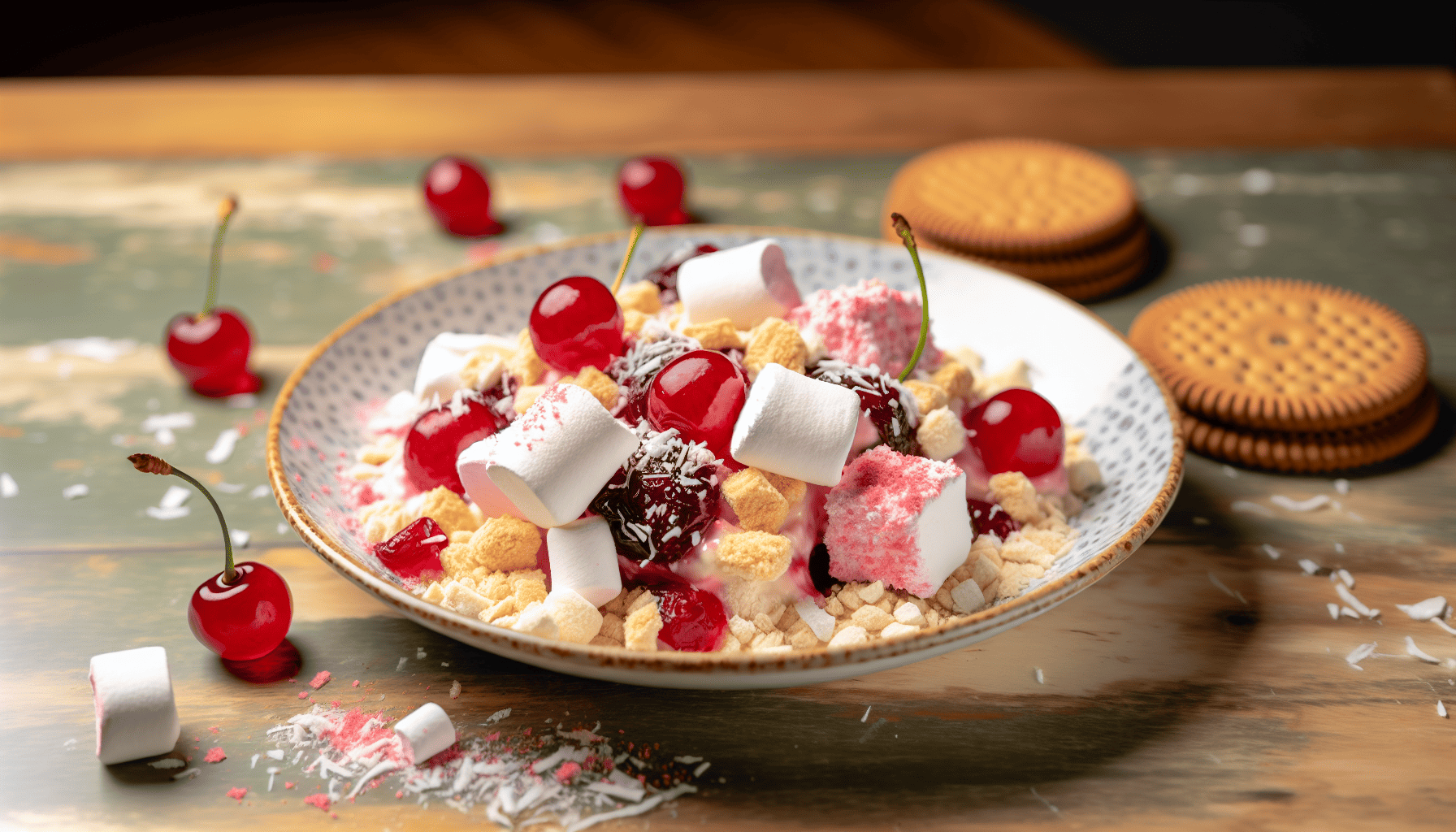
In Northern Ireland, the sweet conclusion to every culinary journey is marked by Fifteens and Yellow Man. Fifteens are a traditional delicacy consisting of crushed digestive biscuits, chopped marshmallows, halved glacé cherries, and condensed milk, all rolled in desiccated coconut.
On the other hand, Yellow Man is a sweet treat, syrupy, and chewy candy with a texture similar to honeycomb toffee. These sweet treats are not just delicious; they are a part of Northern Ireland’s cultural heritage.
Making Fifteens
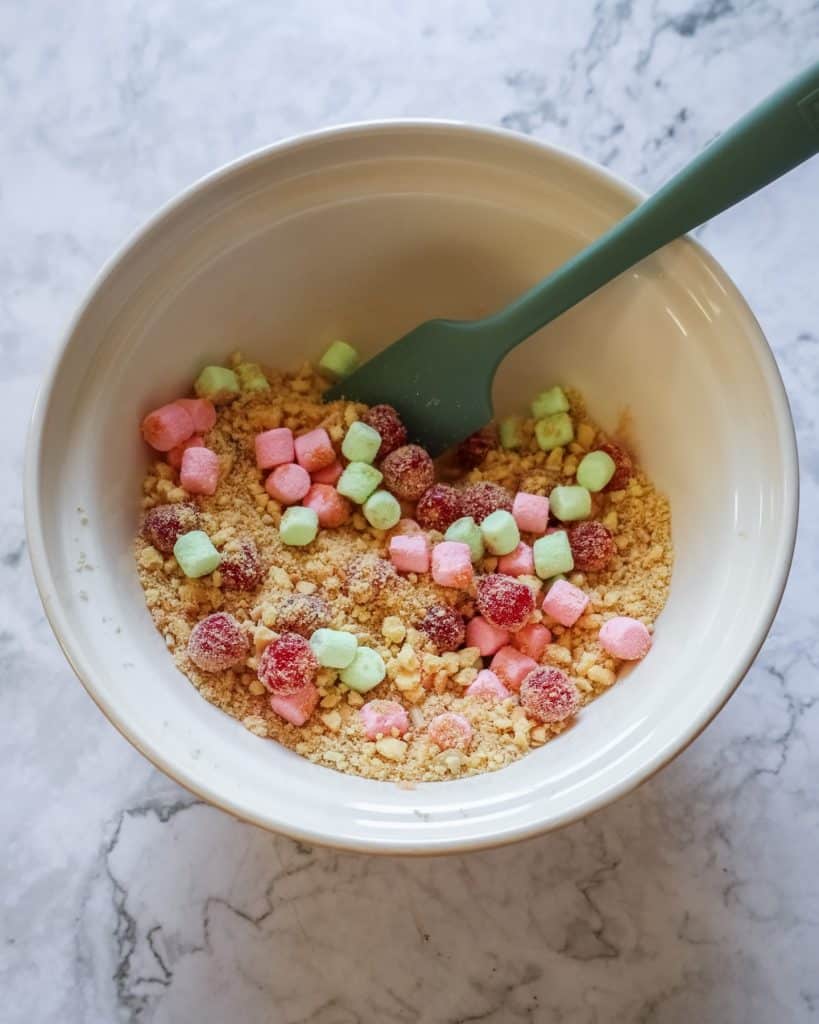
Homemade Fifteens offer a fun and gratifying culinary experience. All you need are:
15 marshmallows
15 Digestive biscuits
15 glacé cherries
sweetened condensed milk
coconut
Mix all the ingredients until well combined, shape into a log, and refrigerate.
Once chilled, cut into slices and enjoy your homemade Fifteens. This simple yet scrumptious dessert is a perfect way to experience Northern Irish culinary tradition right in your own kitchen.
The Charm of Yellow Man
Yellow Man’s charm resides in its distinctive texture and flavour. This traditional Northern Irish candy is made by boiling brown sugar, vinegar, and baking soda until the mixture turns golden brown and achieves a brittle consistency.
Whether enjoyed during Lammas Day or as an everyday treat, Yellow Man is a sweet reminder of Northern Ireland’s culinary diversity.
Hearty Sides: Champ and Colcannon
Hearty side dishes like Champ and Colcannon are essential to rounding off any Northern Irish meal. Champ is a creamy, buttery mashed potato dish with a crunch from scallions, while Colcannon is a warm and creamy dish made with mashed potatoes, cabbage, cream, and butter. Whether served alongside an Ulster Fry or a bowl of Irish stew, these sides are a testament to the comforting simplicity of Northern Irish cuisine.
The Simplicity of Champ
Champ exemplifies the simplicity and flavour of Northern Irish cuisine. Its main ingredients are:
potatoes
green onions
butter
milk
But what sets Champ apart is its versatility. It can be enjoyed on its own, served alongside a fried egg, or used as a base for other dishes.
With its varying preparation methods across different regions of Ireland, Champ truly reflects the diversity of Irish cuisine.
Colcannon: A Taste of Tradition
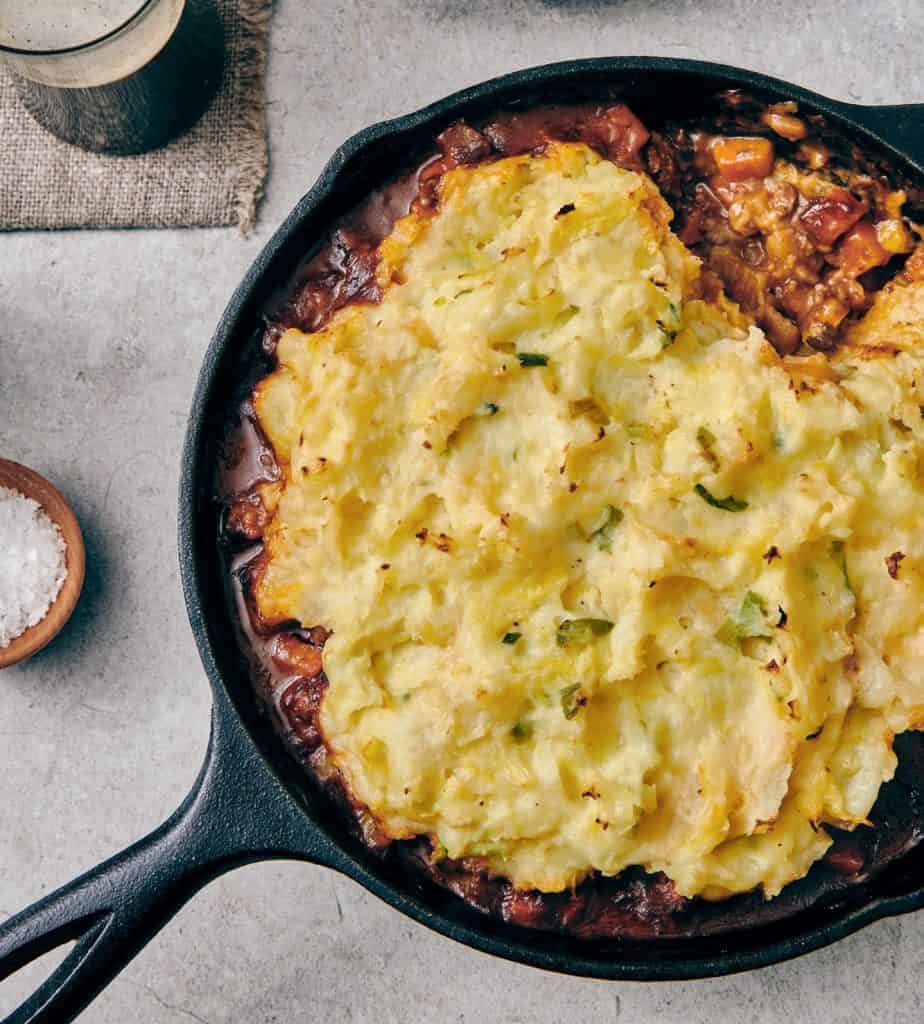
Conversely, Colcannon offers a taste of tradition. This classic Irish dish combines fluffy, buttery mashed potatoes with cooked curly kale, creating a comforting and delicious side dish. Whether served with boiled ham, Irish bacon, or corned beef, Colcannon is a beloved part of traditional Irish cuisine.
Not to mention, it holds a special place in Irish folklore, believed to aid single women in finding a spouse.
From Sea to Table: Northern Ireland’s Seafood Excellence
The excellence of Northern Ireland’s seafood is an indispensable part of its culinary journey. Blessed with a variety of freshwater and seawater sources, Northern Ireland offers a plethora of seafood options, including:
Fresh oysters
Mussels
Lobsters
Scallops
Crab
Haddock
Salmon
From the fresh oysters cultivated in the cold, nutrient-rich Atlantic waters to the smoked salmon raised in fast-flowing tidal waters, the region is a seafood lover’s paradise.
Fresh Oysters: Northern Ireland’s Aquatic Gems
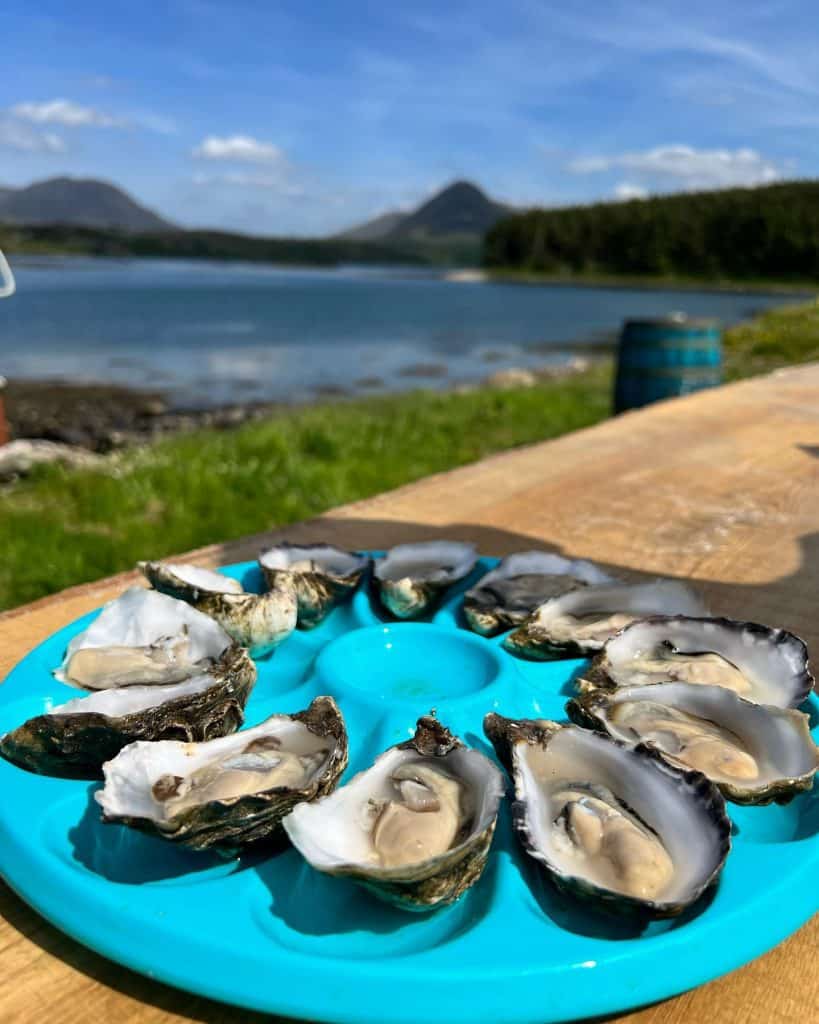
Fresh oysters hold a prominent position among Northern Ireland’s seafood offerings. Known as some of the best in the world, these aquatic gems are cultivated naturally in the Atlantic waters around Northern Ireland. The most cultivated species is the Gigas oyster, renowned for its taste and quality.
Whether you enjoy them raw, grilled, or baked, Northern Ireland’s fresh oysters are a culinary delight that shouldn’t be missed.
Smoked Salmon and Other Delicacies
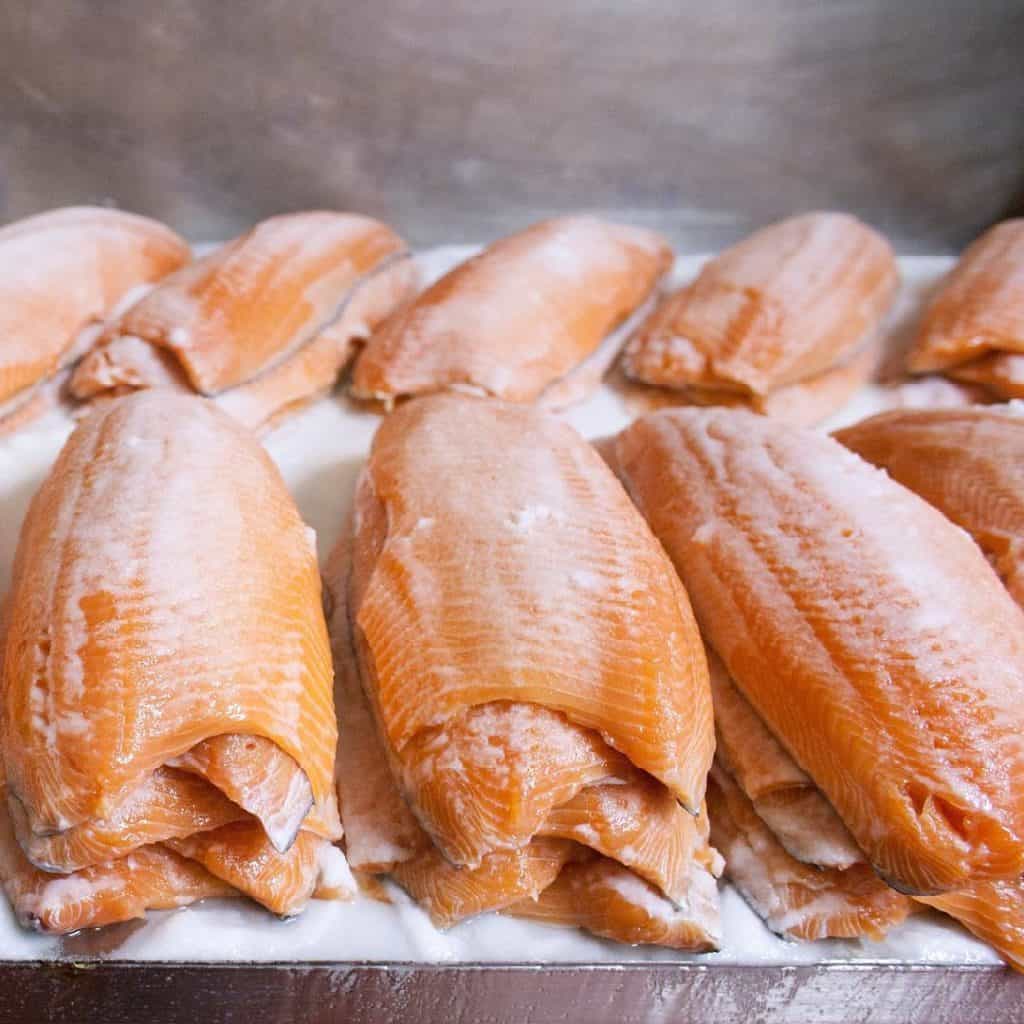
Beyond oysters, Northern Ireland’s seafood scene is famed for its:
Smoked salmon, known for its unique flavor achieved through a special smoking technique combined with local fish and seafood curing methods
Scallops
Prawns
Lobsters
The smoked salmon, in particular, is a must-try.
Whether it’s the smoked salmon, the succulent scallops, or the juicy prawns, every seafood delicacy in Northern Ireland promises a taste of the sea like no other.
The Unique Belfast Bap
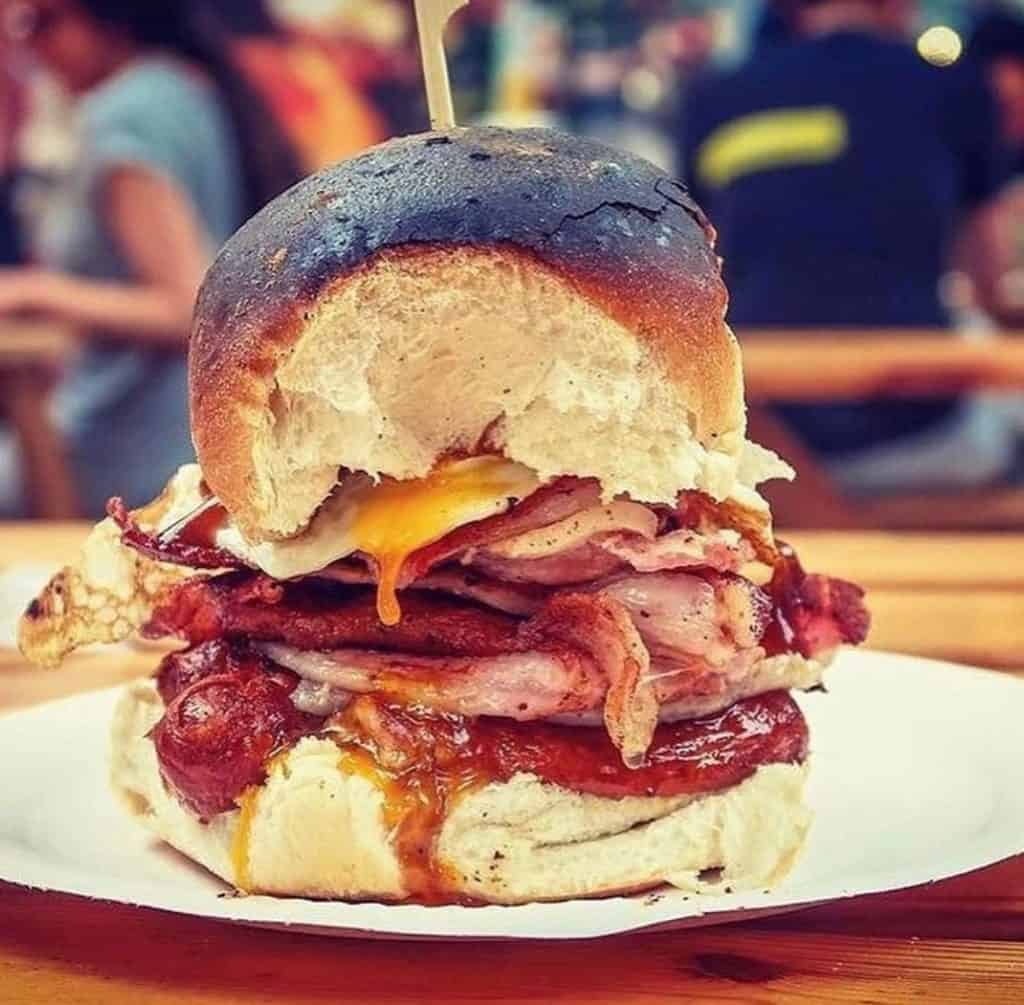
The Belfast Bap represents another distinctive culinary gem of Northern Ireland. This large, crusty yet soft bread roll is often filled with sausages, bacon, and eggs, making it a versatile and filling meal. Whether enjoyed for breakfast, lunch, or dinner, the Belfast Bap is a testament to Northern Ireland’s rich culinary traditions. I highly recommend getting one like that above from The Belfast Bap Company at St Georges Market on a Saturday morning…devine
The Versatile Vegetable Roll
Finally, one cannot overlook the flexible Vegetable Roll, a beloved dish in Northern Ireland. Comprising slices of minced beef, fresh leek, tomato, and onion, this savory treat can be enjoyed at any time of the day.
Whether it’s baked in the oven or deep-fried, the Vegetable Roll is a delicious showcase of Northern Ireland’s culinary versatility.
Summary
From the hearty Ulster Fry to the comforting Irish Stew, the traditional baked goods to the sweet delights of Fifteens and Yellow Man, the seafood excellence to the unique Belfast Bap, Northern Irish cuisine is a gastronomic journey that promises to delight every palate. Whether you’re a food enthusiast or a culinary explorer, these traditional dishes offer a taste of Northern Ireland’s rich cultural heritage and culinary diversity.
Frequently Asked Questions
What is the traditional food in Northern Ireland?
Traditional Northern Irish food includes Ulster Fry, local seafoods, soda bread, Veda bread, champ mash, potato bread, vegetable roll, and Fifteens.
What is Belfast known for food?
Belfast is known for its hearty, traditional dishes like Irish stew, soda bread, and Ulster fry. You’ll also find excellent seafood and artisanal cheeses to enjoy.
What is typical breakfast for Northern Ireland?
An Ulster Fry – a traditional Northern Irish breakfast – typically includes bacon, sausages, black pudding, eggs, potato cakes, mushrooms, and beans. It’s a real treat to enjoy this huge plate of fried delicacies, though not the healthiest meal.
What is the traditional form of Irish Stew?
Irish Stew is a classic dish made of lamb or mutton, potatoes and onions – the perfect combination for a hearty and warming meal.
How are Soda Bread and Potato Bread made?
Soda bread is made with flour, baking soda, salt, and buttermilk while Potato bread is created by incorporating mashed potatoes into the dough.

